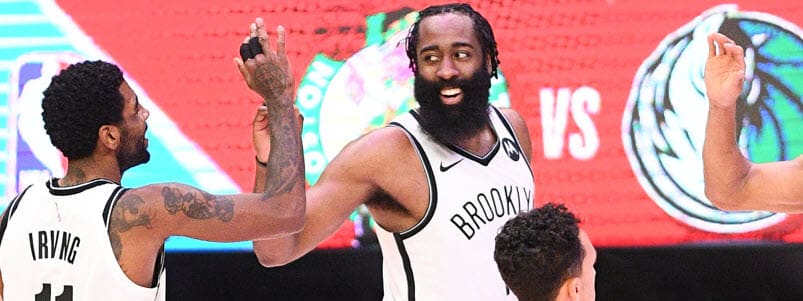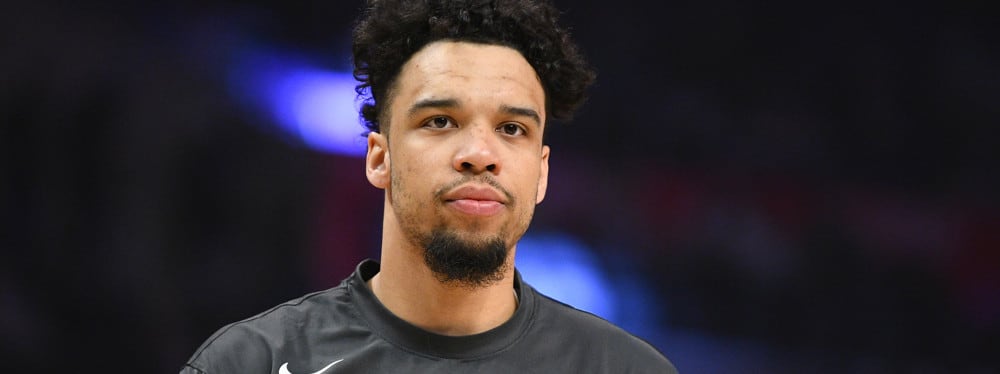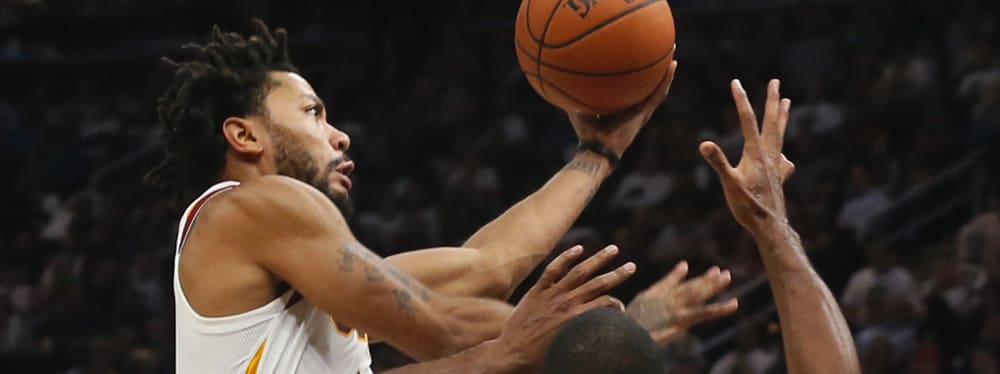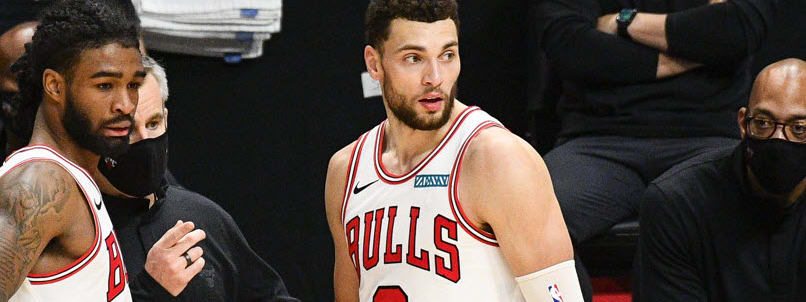Recent RotoWire Articles Featuring Glenn Robinson
See More
Robinson started a career-high 52 games in his sixth season out of Michigan, averaging 11.7 points, 4.4 rebounds, 1.5 dimes, 1.2 threes and 1.2 combined blocks/steals - all career highs. His shooting splits (aside from three-point) of 48.6/86.0/39.1 were all career highs. Robinson started the season with Golden State, where he was given an expanded role due to the absences of Steph Curry and Klay Thompson and the rebuilding nature of the team in the post-Kevin Durant era. He was dealt to Philadelphia just before the February trade deadline and saw his minutes shrink sharply from 31.6 to just 19.3 as a reserve off the bench. An unrestricted free agent, Robinson will likely test the free-agent market after his productive campaign, and his fantasy value is contingent on where he signs. Returning to a crowded Philadelphia team will cap his upside.
Robinson spent the last three years in Indiana and occasionally showed some promise, but surgery on his left ankle costed him the first 58 games of the 2017-18 campaign. That essentially rendered him useless in Fantasy leagues and even after returning to play in 23 games following the All-Star break, Robinson still averaged just 4.1 points and 1.6 assists across 14.7 minutes. However, the Pacers were clearly easing him back into action and they also knew he was on an expiring contract, so there was no real reason to get Robinson significant run. Despite the abbreviated season, the Pistons like the upside of the 24-year-old and signed him to a two-year, $8.3 million contract in free agency. He'll likely start the year in a reserve capacity behind the likes of Reggie Bullock, Stanley Johnson and/or Luke Kennard. That said, if he outplays any of the aforementioned options, Robinson could certainly work his way up the depth chart and potentially into a starting role by the end of the year. After shooting 41.2 percent from deep last season and 39.2 percent in 2016-17, Robinson has the ability to knock down threes, but he'll need to continue to develop his game elsewhere in order to become a viable Fantasy target.
Robinson saw a career-high 20.7 minutes last season, posting 6.1 points and 3.6 rebounds per game. The 23-year-old wing also shot 46.7 percent from the field and went 49-for-125 (39.2 percent) from beyond the arc. While the absence of Paul George means Robinson could be in line to see an increased workload during the 2017-18 campaign, the team acquired Victor Oladipo – who’s capable of playing point guard through small forward – in the trade that sent George to the Thunder. Robinson also isn’t exactly a high-impact player from a statistical perspective -- averaging just 10.6 points, 6.2 rebounds, 1.2 assists and 1.0 steal per 36 minutes last season – so the possibility of him seeing a larger workload next season doesn’t necessarily mean he’ll become Fantasy relevant. Therefore, he can probably be safely avoided in the vast majority of Fantasy formats.
Despite Robinson's struggles during his rookie season, he showed enough in the 2015 summer league to earn a three-year contract from the Pacers. In 35 games split between Minnesota and Philadelphia last season, Robinson averaged a modest 2.1 points, 1.1 rebounds, and 0.1 three-pointers over eight minutes per game. The Hawks then signed him for their Las Vegas Summer League squad, and the results were solid. In Las Vegas, Robinson averaged 11.8 points, 3.2 rebounds, 1.0 assist, 0.7 blocks, and 0.7 steals in 22 minutes per game through six contests. Clearly the Pacers see potential in the 21-year-old former Michigan Wolverine. But minutes will be hard to come by for the 6-7 tweener forward. He's currently behind C.J. Miles, Solomon Hill, and Chase Budinger on the small forward depth chart. None of those teammates are All-Stars, but Paul George will presumably also see some time at power forward when Indiana decides to "go big". The opportunity is there for Robinson to prove he belongs in the Association, but he is a long way from reaching "Big Dog" status.
Glenn Robinson was taken by Minnesota in the second round of the 2014 NBA Draft. The 6-7 forward spent two successful years with the Michigan Wolverines (playing in 76 games) and showed excellent athleticism at the NBA draft combine. At Michigan, Robinson averaged 12.0 points but never led the team in scoring. He hit 31 percent of his three-pointers but excelled near the basket by hitting 60 percent of his 2-point shots (reminiscent of his father, the first-overall pick of the 1994 NBA Draft). Robinson had a tendency to drift in and out of games while teammates like Trey Burke and Nik Stauskas took over. He did score in double digits in 12 of his last 13 games and hit a career high of 23 points twice in his sophomore season. If he can channel his athleticism into viable NBA skills, Robinson could be a future sleeper. As a rookie, Robinson will likely spend at least part of the season in the D-league since Minnesota seems fairly deep at small forward. (Andrew Wiggins, Chase Budinger, and Shabazz Muhammad should all be ahead of Robinson on the Timberwolves depth chart.)













